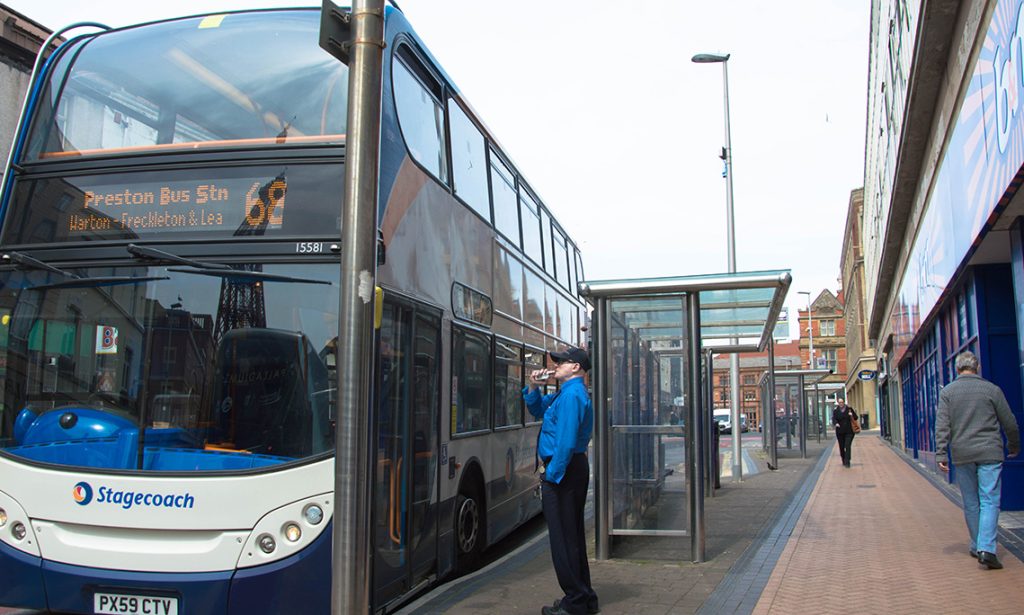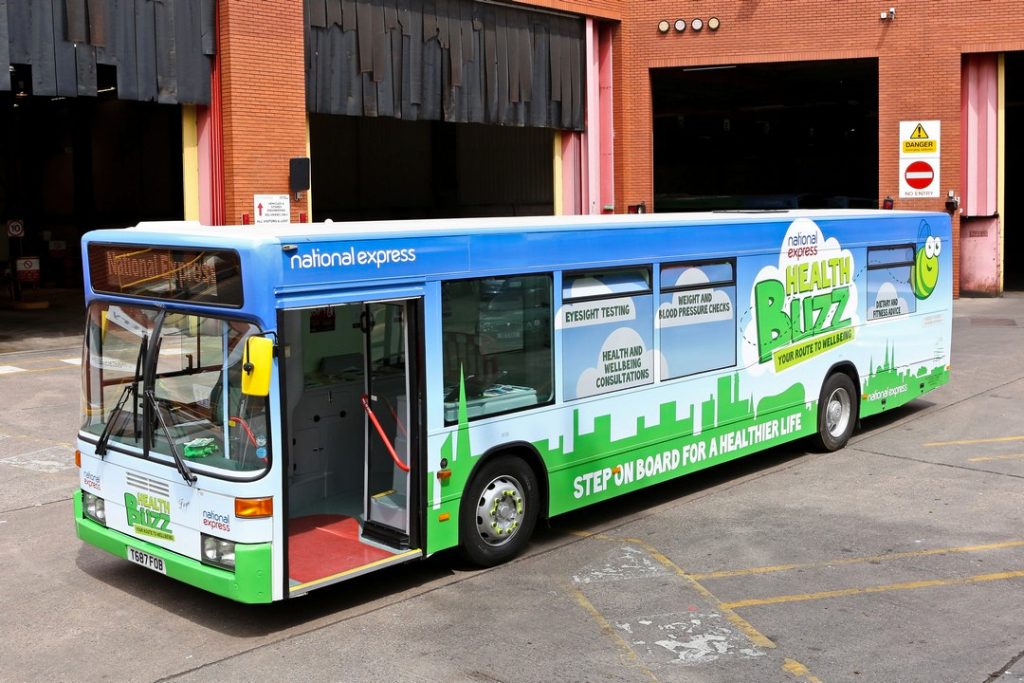Public research released in January unveiled that employees within the UK’s coach and bus companies are three times more likely to embrace smoking compared to the average.
The statistic, brought to light by the Office for Health Improvement and Disparities, underscores what it calls a growing occupational health inequality that poses challenges for human resources teams across the sector.
It comes as the government aims to reduce the smoking population to 5% of adults by 2030. That sharpens the focus on the role of public transport companies in championing the cause. Innovative approaches, such as the ‘swap to stop’ scheme, which equips smokers with free vape starter kits, have shown promising results in trials conducted by the University of East Anglia and the NHS Stop Smoking Service. Yet, the disparity in smoking rates within routine and manual industries, particularly pronounced in areas like Manchester, Islington, and Merton, underscores a pervasive issue that demands a response.
With more than one in five public transport workers in England lighting up, the call to action for smoking cessation initiatives has become more urgent. The data, compiled by Vape Club, highlights the need for support mechanisms while reflecting a broader societal imperative to bridge a health inequality gap that has widened by 5% in the past five years.
It tasks industry leaders and HR professionals with implementing strategies to foster a healthier, more productive workforce. From smoke-free policies to personalised support, the path to smoking cessation comes with challenges but is illuminated by potential for organisational and societal benefits. As routeone delves deeper into the issue in the first of a series of articles on health and wellbeing in the coach and bus sector, we examine the collective efforts of companies dedicated to safeguarding employee health and enhancing the quality of their professional lives.
Longstanding champions
One operator at the forefront of championing employee health and wellbeing is National Express, a company that has taken strides to foster a culture of wellness among its workforce.
Understanding the importance of holistic health, National Express has established a comprehensive ‘wellbeing hub’ that serves as a cornerstone for its health and wellbeing initiatives. This platform offers toolkits, resources, and learning courses designed to address several aspects of employee wellness, including mental, physical, and financial health.
In an effort to combat smoking within the industry, National Express has provided resources and guidance for smoking cessation while actively engaging with community partners to launch localised stop-smoking initiatives. Such targeted efforts underscore a commitment to encouraging healthier lifestyle choices among the company’s colleagues, and aim to foster long, fulfilling careers within transport.
A noteworthy innovation in National Express’ approach to employee wellbeing has been the introduction of the GP Hero service. The service offers round-the-clock access to healthcare professionals via video or phone, ensuring that both employees and their young dependents can receive timely and unlimited health advice.
National Express’ also held a number of stop smoking roadshows over three days, further exemplifies the commitment.
The operator’s award-winning Health Bus brings confidential medical checks and advice directly to employees across various sites, alleviating strain on the NHS and accommodating diverse working patterns within the sector. The early identification of serious health conditions through this mobile service has indeed been life-saving, according to UK Communications Manager Nikki Houghton, highlighting the tangible impact of proactive health initiatives on employee wellbeing.
Complementing these efforts, National Express’s partnership with a leading provider of employee support services through its Employee Assistance Programme ensures that professional support is also readily available. This programme offers a confidential lifeline for employees seeking advice on a broad spectrum of personal and professional issues, from mental health challenges to bereavement and beyond.
Holistic is the correct approach?
Stagecoach East presents a different perspective on the issue of smoking cessation. The operator candidly acknowledges the limited scope of its initiatives in this area, emphasising a broader focus on the overarching health and wellbeing of its workforce rather than quantifying the business impacts of smoking cessation efforts specifically.
This stance reflects a pragmatic approach to employee wellness, where the emphasis is placed on holistic health outcomes rather than targeted metrics related to smoking.
Similarly, Belle Vue Coaches, based in Manchester, does not offer specific support or programs related to smoking cessation, reflecting a perspective that smoking and the driving role do not intersect problematically within their operations — acknowledging a company culture and operational environment where smoking habits do not visibly impact business efficiency, or employee performance. Moreover, Managing Director Phil Hitchen reveals that Belle Vue has not identified any negative business impacts attributable to staff smoking habits, such as operational delays or increased health-related absences.
However, despite the lack of targeted smoking cessation initiatives, Belle Vue is actively engaged in promoting the overall health and wellbeing of its staff. The company offers discounted corporate gym memberships through strategic partnerships, providing a tangible incentive for employees to engage in physical fitness activities. Additionally, Belle Vue incorporates the “wheel of life” system of work-life balance training for new applicants, underlining the importance of holistic wellbeing.
Looking towards the future, Belle Vue is also exploring the provision of private health insurance as part of its employee benefits package. This development comes alongside considerations for mental health support, in response to what Phil refers to as its “increasing relevance”.
Proactive approach
Wellglade Group takes a proactive and comprehensive approach to employee health and wellbeing, integrating smoking cessation support within a broader spectrum of wellness initiatives. The company offers a multifaceted support system for staff wishing to quit smoking, including anytime access to a confidential telephone-based counselling service, an online health portal brimming with resources such as articles, videos, and self-help guides on quitting smoking, and an open invitation for team members to seek day-to-day support and encouragement from their local leadership.
This method of providing a supportive environment for smoking cessation aligns with the wider industry’s growing recognition of the need for holistic health and wellbeing programs, as seen at companies like National Express and with Personal Group’s Hapi app. Wellglade’s approach underscores the importance of accessibility to support services and echoes an industry-wide move towards inclusive health initiatives.
In terms of the impact of smoking on business operations, Wellglade maintains that such issues, if they arise, are addressed on an individual basis, suggesting a personalised approach to managing staff wellbeing.
Expanding beyond smoking cessation, Wellglade boasts a dedicated Health and Wellbeing portal within its internal communications platform, Blink, which encapsulates a wide array of wellness resources. This includes 24/7 access to confidential counselling, discounted health club memberships, and opportunities for staff to engage in community and environmental initiatives, such as a partnership with Derbyshire Wildlife Trust.
“We are always striving to help our team improve their mental and physical health and we will continue to enhance they ways in which they can do this,” says Trentbarton Marketing and Communications Manager Scarlet McCourt. “More training will be made available for those who wish to become Mental Health First Aiders, and we will continue our partnership work with charities and other organisations. Most importantly, we will always ensure lines of communication are open so team members know they can, and should, share their concerns. We believe it is vital that all our team members know there is help available and we encourage them to access it.”






























